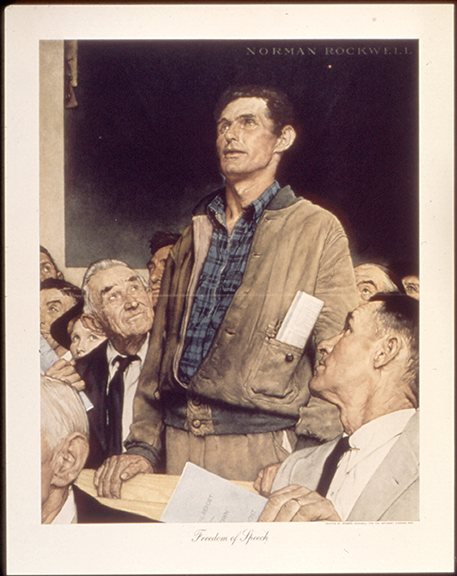
From Salon magazine
Say what you will about American politics, right or left, conservative or liberal; if there is one bedrock value in American life, it is the absolute devotion to freedom of religion, speech, press, petition and assembly — that is, the First Amendment, and with it, the ability to openly follow one’s own moral compass and to discuss important issues of the day from one’s own perspective.
No candidate for office can threaten this bedrock value without incurring the wrath of an aroused electorate. Yet Donald Trump and followers insist that the “evil” media must be muzzled for their convenience, and that the Constitution is no impediment.
In recent months, Trump has repeatedly demonized the media, to the pointwhere reporters covering his rallies have been beaten and abused; he has




